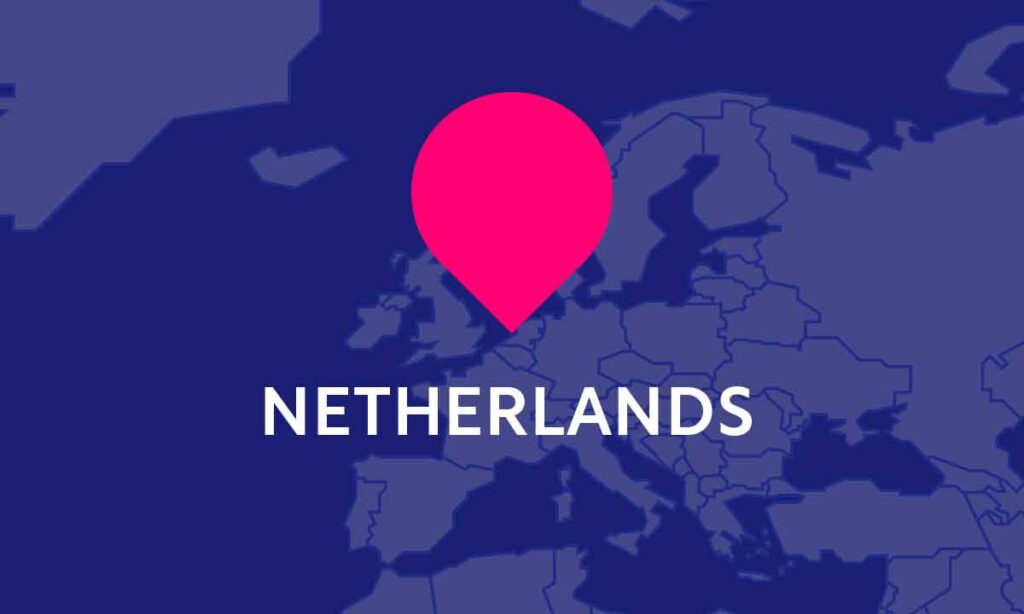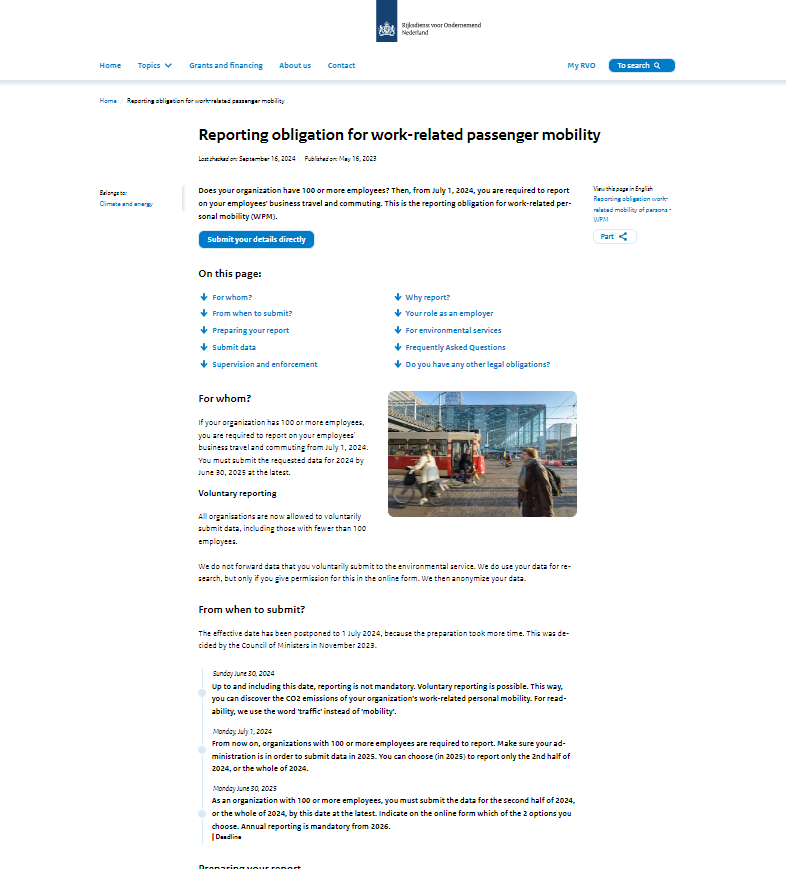The Netherlands has made travel emissions reductions a requirement: starting in July 2024, businesses above 100 employees are required to report annually to the government on progress towards the mandated 50% decrease in domestic mobility emissions by 2030, from 2016 levels.
This requirement is part of the Netherlands Climate Agreement and it applies to both business travel and commuting. The Work-related Mobility of Persons Decree and its reporting obligation aim to reduce CO2 emissions caused by work-related mobility by at least 1.5 megatons by 2030.
The Agreement presents the shift from air to rail as a solution to reduce emissions. It states that all trips for distances under 700 km, where travel time from door to door by train is <150% the travel time by plane, should be done by rail.
There will be an assessment of the reported data in 2026. If evaluation of the reports shows that the collective target of a 50% reduction in 2030 will not be achieved, the Dutch government will impose norms on a maximum of CO2 emissions per km, with which individual companies will have to comply.
The members of the Anders Reizen coalition, a group of more than 70 large companies with around 550,000 employees, have pledged to follow the Dutch government requirements to shift to rail and reduce emissions.
Read more about our recommendations regarding the shift from air to rail here.

